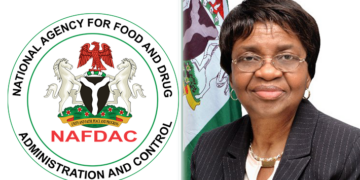New Horizons Global Health Labs, in collaboration with eHealth Africa, has donated state-of-the-art Indigo Vaccine Carriers to the Borno State Primary Health Care Development Board (BoSPHCDB) to enhance vaccine delivery in remote and hard-to-reach communities.
The commissioning ceremony held in Maiduguri, brought together state leaders, donor representatives, technical partners, and frontline health workers to witness the symbolic handover and demonstration of the equipment.
The donation, which comprises 110 Indigo units, 25 PQS units, and multiple charging stations, will be deployed across 61 health facilities in nine local government areas, supporting both routine immunisation and special outreach campaigns.
The Indigo Vaccine Carrier, pre-qualified by WHO PQS in July 2024, maintains vaccines at +2°C to +8°C for up to five days without ice or electricity. This freeze-free design protects vaccine potency, reduces wastage, and enables last-mile delivery in mountainous, riverine, and security-compromised areas.
John Beale, New Horizons Global Health Labs representative, highlighted the carrier’s flexibility:
“The Indigo can keep vaccines potent for up to five days without power, enabling immunisation even in unpredictable conditions. Borno’s willingness to pilot the technology since 2017 has been pivotal; their story is now the example we share globally.”
Director of Partnerships and Programmes at eHealth Africa, Ota Akhigbe, reflected on the broader significance.
Tahir Buhari, Senior Research Manager at eHealth Africa, shared measurable impact from years of deployment.
“Facilities using Indigo have cut transport costs by 50%, moved from two sessions a week to daily services, and are reaching almost twice as many children compared to ice-pack carriers,” he said.
After receiving the donation, Prof. Mohammed Arab Alhaji, Executive Secretary of the BoSPHCDB, assured that the state would scale the innovation.
“This technology will reach every facility and settlement. The government is committed to procuring more units so zero-dose children become a thing of the past,” he said.





